Space

Educators and Parents, Sign Up for The Cheat Sheet
Weekly updates to help you use Science News Explores in the learning environment
Thank you for signing up!
There was a problem signing you up.
-
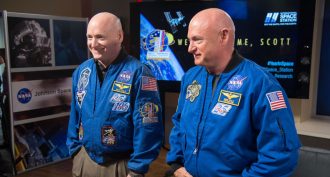 Health & Medicine
Health & MedicineHow a year in space affected Scott Kelly’s health
Nearly a year in space changed Scott Kelly’s genes, brain function and more, NASA’s Twin Study shows.
By Jeremy Rehm -
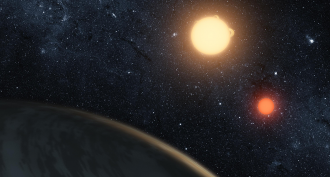 Planets
PlanetsTeen astronomer finds a planet with two suns
Brian Wu, a teen researcher from New York City, has discovered a handful of distant planets, including a massive world that orbits two suns.
By Sid Perkins -
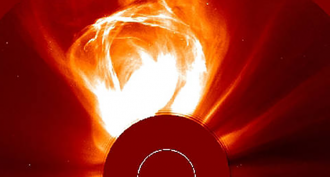 Space
SpaceScientists Say: Space weather
It may not be cloudy with a chance of rain, but space has weather too. Wind and ejections from the sun can send charged particles toward the Earth, knocking out our electricity.
-
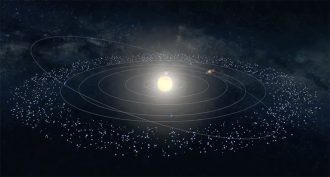 Space
SpaceSome dust in Earth’s atmosphere may hail from beyond Neptune
Bits of space debris in Earth’s atmosphere may come from the Kuiper Belt. This zone of dust and ice sits just beyond Neptune.
-
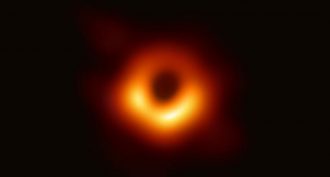 Physics
PhysicsHere’s the first picture of a black hole
The Event Horizon Telescope imaged the supermassive beast lying some 55 million light-years away in a galaxy called M87.
By Lisa Grossman and Emily Conover -
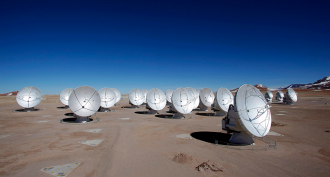 Tech
TechIt took a ‘virtual’ telescope to actually picture a black hole
Here’s how scientists connected eight observatories across the world to create one Earth-sized telescope. This is what it took to create an image of a black hole.
-
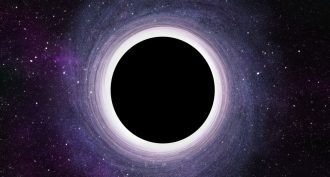 Physics
PhysicsA short history of black holes
From dreaming up black holes to snapping the first picture of one, the history of black holes has had many twists and turns.
-
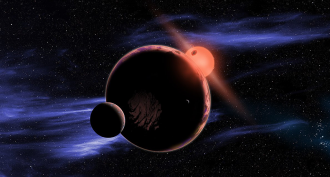 Space
SpaceScientists Say: Red Dwarf
Red dwarfs are the most common kind of star in the Milky Way. They are much smaller and cooler than our own sun.
-
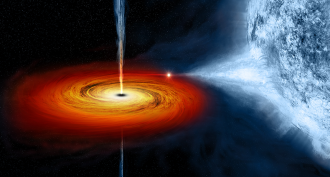 Physics
PhysicsExplainer: What are black holes?
Among the most extreme celestial bodies in the universe, black holes are dense, massive entities whose gravity can sometimes hold together an entire galaxy.
-
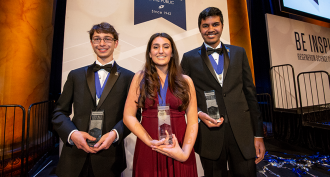 Space
SpaceExoplanet hunting, HIV-fighting and math garner big prizes for teens
Winners of the 2019 Regeneron Science Talent search hunted exoplanets in new ways, tracked how HIV likes to hide and tackled some candy jar math.
-
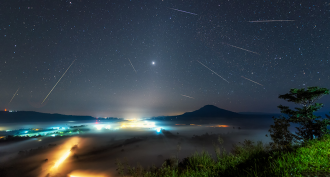 Space
SpaceOn the lookout for micro-missiles from space
Speeding specks of space dust can damage spacecraft. But if they make it to Earth, these tiny rocks can offer lessons on how the solar system formed.
-
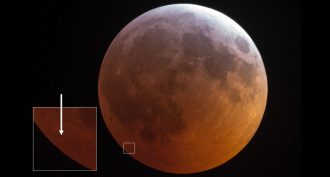 Space
SpaceCaught on camera: A small rock hit the moon
Photographers documented a rocky impact during January’s total lunar eclipse.